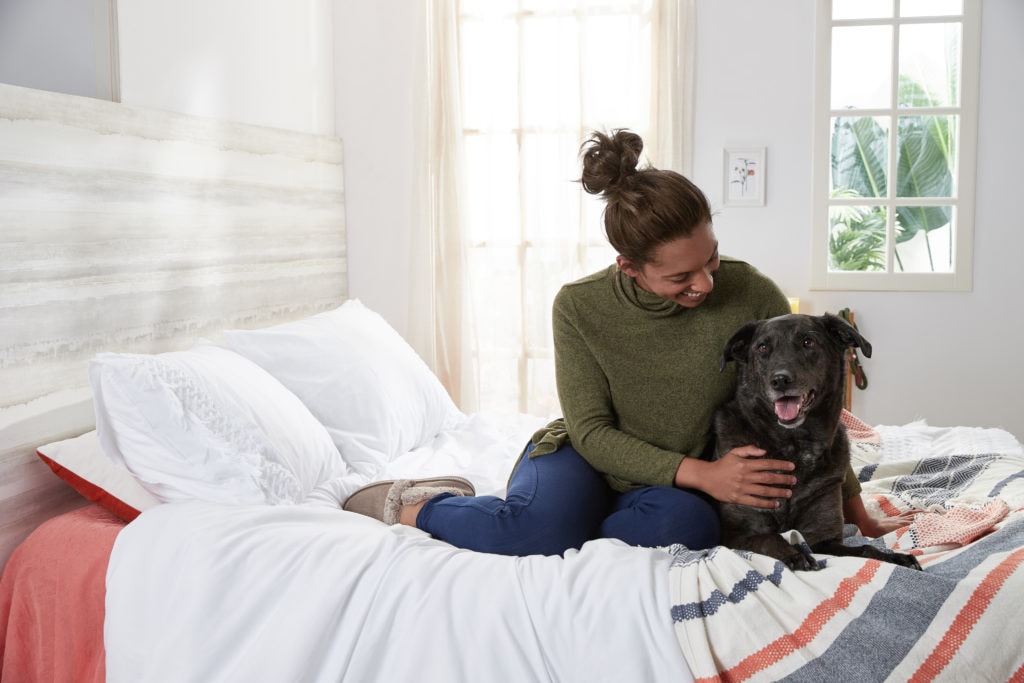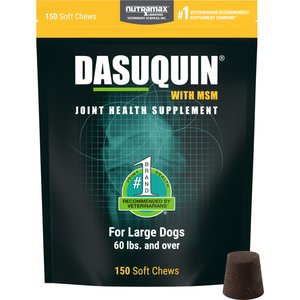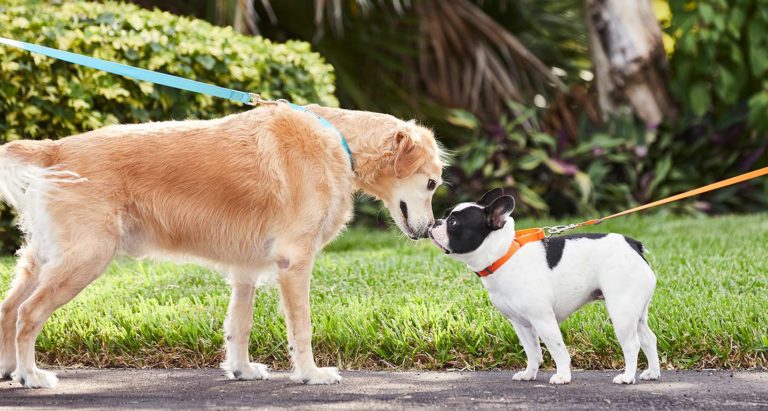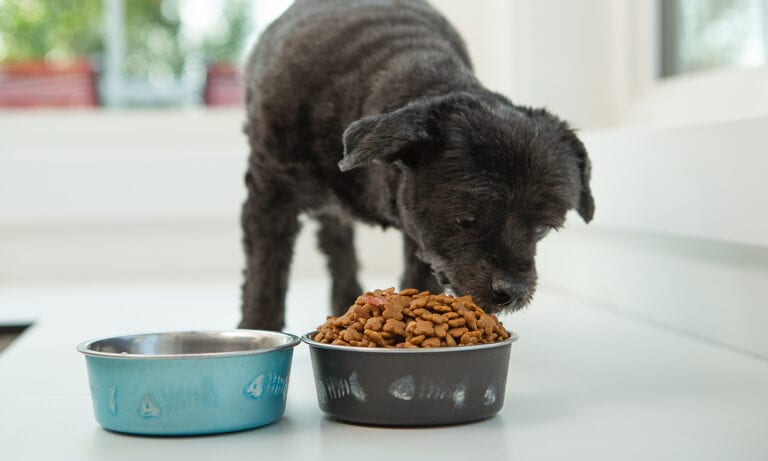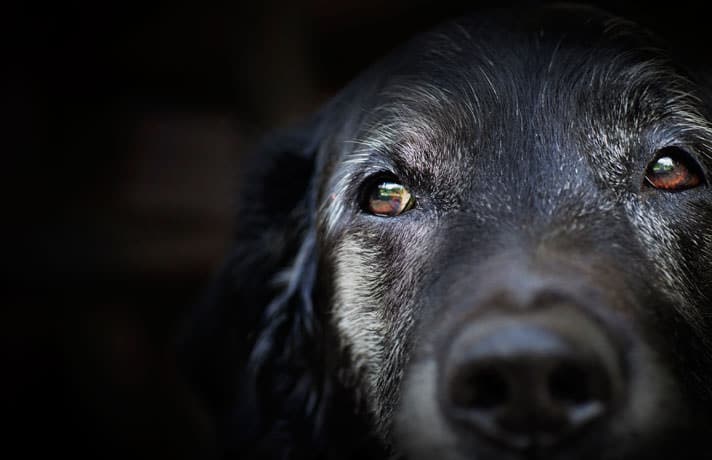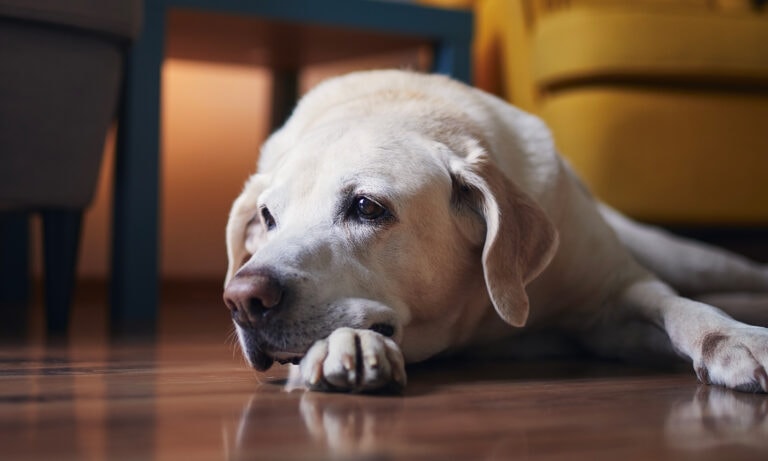Whether your pup is approaching their golden years or you recently adopted a senior dog, you may have noticed some signs of aging. To promote health and longevity in your furry friend, you might need to provide different care than you would for a younger pup.
So, at what age are dogs considered seniors, and how can you make sure your gracefully aging pup is living their best life? We've got everything you need to know.
In This Guide
When Is a Dog Considered a Senior?
Small breed dogs tend to age more slowly and live longer, while large breeds tend to age more quickly and have shorter life spans. One theory for this difference is simple wear and tear and the effect of gravity over time. Others believe genetics play a role.
Whatever the reason, the age when a dog is considered a senior differs between breeds:
- Small dog breeds, like Chihuahuas and Pomeranians, age more slowly and are considered seniors at 10-12 years old.
- Medium dog breeds, like Border Collies and English Springer Spaniels, are moved into the senior category at ages 7-8.
- Giant breed dogs, like Great Danes and Mastiffs, tend to be considered seniors at ages 5-7.
While age is a good determination of when a dog becomes a senior, you also might be able to notice through behavioral and physical changes. Click here to learn more about when a dog is considered a senior.
What Are Typical Senior Dog Behavior Changes?
A senior dog’s behavior changes can depend on their underlying health. Some senior dogs continue to behave like puppies and, other than a white muzzle, are indistinguishable from younger dogs. Other pooches might show more blatant behavioral signs of aging.
Older dogs might suffer from canine cognitive dysfunction (CCD), otherwise known as doggy dementia. This age-related syndrome causes declines in canine cognitive function. Dementia causes behavioral changes that can range from loss of potty training to confusion. Other signs might include:
- Changes in sleep patterns
- Anxiety
- Increased aggression
- Lethargy
- Inappropriate barking, whining or howling
- Pacing
- Staring at walls
- Not responding to their name
Other noticeable senior dog behavioral changes are a result of osteoarthritis. Osteoarthritis in dogs is defined as inflammation and pain associated with loss or degradation of cartilage within articular joints in the body. This may cause behavior changes like:
- slowing down
- acting irritable
- sleeping more
- reduced social interaction
- whimpering
- refusing to move
If you notice any changes in your dog’s behavior, your dog should be seen by a veterinarian. They can determine the underlying issue and prescribe a treatment plan to help your pup if necessary.
What Are Common Physical Changes in Senior Dogs?
You might notice physical signs of aging as your pet gets older, too. These might include:
- Increased opacity in the eyes due to age-related thickening of the lens
- Loss of hearing
- Weight or appetite changes
- Hair/coat changes, including going gray
- Gum inflammation from dental disease as a result of plaque and tartar buildup
- A walking limp from joint pain
Note: Certain dog breeds can experience specific aging conditions. For example, Dachshunds, which have longer backs than most dogs, might develop back problems, such as disc disease. Larger breed or overweight dogs might be more prone to osteoarthritis.
Most behavioral and physical changes are normal. Some changes actually are warning signs that something is wrong. For example:
- Sudden changes in weight or appetite might indicate an underlying health issue, such as cancer or hormonal imbalances.
- Increased water consumption, urination or loss of potty training can indicate kidney problems, Cushing’s Syndrome (an adrenal gland disorder) or diabetes.
- Skin lumps or bumps might signal cancer.
Just like with behavior changes, always consult your vet when you notice a physical change in your dog, so they can determine the cause and treatment if needed.
Keeping Your Senior Dog Physically and Mentally Healthy
When it comes to senior dog care, a healthy diet, exercise and regular veterinary visits are crucial.
Senior Dog Diet
Diet includes everything that goes into your dog’s mouth, including dog food, treats and supplements. These days, many dog foods are formulated to provide complete and balanced nutrition along with extra benefits. For example, Purina Pro Plan bright mind is formulated with DHA, EPA and antioxidants to help promote brain health.
Many older dogs are prone to joint disease, so giving your pet a veterinary-approved joint supplement, like Dasuquin can help promote joint health and protect cartilage. If your senior canine already has mobility challenges, you can make it easier for them to get in and out of cars or on and off of furniture with pet stairs or ramps. Find out how to train a dog to use pet stairs.
Sometimes older dogs cannot digest their food as well and might not be getting all the nutrients they need from a conventional diet. Other times they may experience concurrent problems, such as hormonal conditions or joint disease. These dogs might benefit from a multivitamin to meet additional nutritional needs. Ask your vet about adding a daily multivitamin like Vetriscience Canine senior plus to help make sure your pooch is getting all their nutritional needs met.
Senior Dog Exercise
Playtime contributes to your senior dog’s physical health as well as their mental and emotional well-being. Older dogs who don't play might become depressed and gain weight over time.
Play also helps with mental clarity, increases a sense of well-being for pup and parent, gets stiff joints moving, helps maintain muscle mass and generally helps keep older dogs young at heart. For a dog toy designed specifically for seniors, KONG senior dog toy is designed to be kinder to teeth and gums, and it can be stuffed with treats to encourage your fur friend to play.
Senior Dog Veterinary Care
Older dogs are more prone to certain diseases, such as osteoarthritis. Moreover, things can change rapidly in an aging dog’s body. That’s why it’s so important to have a good relationship with your veterinarian. Take your dog in at least once a year for a physical examination and any recommended tests.
Share:
